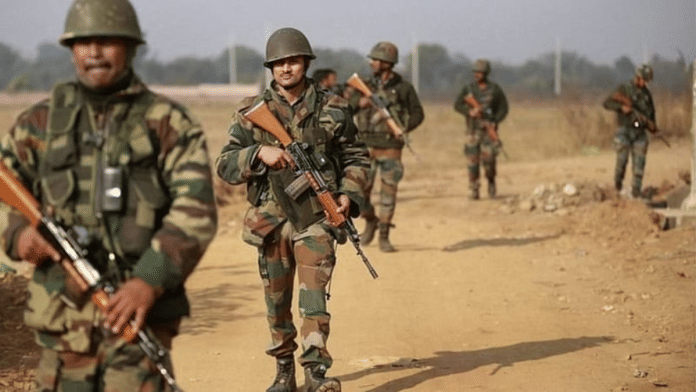Thank you dear subscribers, we are overwhelmed with your response.
Your Turn is a unique section from ThePrint featuring points of view from its subscribers. If you are a subscriber, have a point of view, please send it to us. If not, do subscribe here: https://theprint.in/subscribe/
In an age of increasing globalization and interdependence, nations worldwide are exploring innovative avenues to enhance their economies and global standing. One unconventional yet potent strategy for India lies in leveraging its most significant asset – its youthful population, by transforming them into a professional peacekeeping force that can be commissioned by other nations.
India, characterized by its demographic dividend, is home to the world’s largest youth population. According to the UN’s Population Fund report, over 600 million of India’s population is under 25 years old – a veritable powerhouse of talent and energy. This youthful demographic, when coupled with robust military training, could yield an efficient, professional army capable of serving in peacekeeping missions worldwide.
The proposition is clear: Establish a separate, professional army division that nations can commission on a rental basis for peacekeeping and humanitarian operations. Not only would this provide gainful employment to India’s youth, but it also presents a unique business model that could boost India’s economy while raising the country’s stature on the international stage.
This concept, however, must be grounded in strict operational & Financial principles. The foremost condition would be a clear mandate that the rented army never operates against India, its allies, or in any mission that contravenes India’s foreign policy goals. Additionally, the deployment of this force should be strictly for peacekeeping & humanitarian missions under the auspices of international law but can be deployed in war to save the nation from internal and external dangers conflicts.
Implementing such a plan requires a robust infrastructure for military training and education. India’s current army training institutes, such as the National Defense Academy and the Indian Military Academy, already set the benchmark high with their rigorous curricula. Extending this model to accommodate the professional rented army can ensure a well-trained, disciplined force. This investment in training also promises enhanced employment opportunities for the youth, thereby addressing one of India’s critical socioeconomic challenges.
Further, this business model promises a stream of income that can significantly contribute to India’s GDP. It aligns with the international trend of Private Military and Security Companies (PMSCs), which offer security services to nations. However, it adds an element of national governance and control, thus ensuring ethical considerations are met.
In addition to its economic benefits, this concept presents a diplomatic advantage. As this professional army engages in peacekeeping missions worldwide, it would amplify India’s image as a responsible and significant player in global peace efforts.
In conclusion, transforming India’s demographic strength into a professional peacekeeping force presents an innovative economic model while projecting India’s diplomatic soft power. This concept aligns with the nation’s aspiration to play a more prominent role in international peace and security, all while generating economic opportunities for its youth. As we envision this future, the words of the Indian philosopher, Swami Vivekananda, come to mind, “The future is in India’s youth.” This future can indeed be one of global peacekeeping and prosperity, bringing new relevance to his words.
These pieces are being published as they have been received – they have not been edited/fact-checked by ThePrint.


